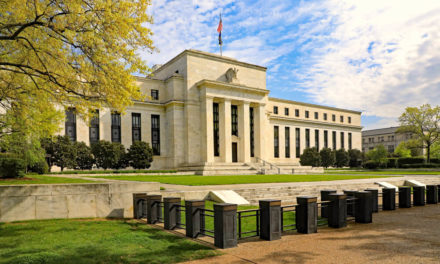We still have troops in Germany and South Korea. They were stationed there temporarily to keep the peace after those wars ended 73 and 65 years ago, respectively. Why are they still there?
The reason is that after the turmoil of war the presence of U.S. troops becomes a stabilizing force necessary to forge a new peace. In theory, they remain there until the new order is sufficiently strong enough so they are no longer needed. In reality however, the troops become an essential part of the infrastructure of the new order, and their leaving would destabilize the country or region. So they remain, indefinitely.
It isn’t that this country hasn’t tried pulling the troops out after a war. We did that in Vietnam and Iraq, and look what happened. Speaking on the subject of war and military action, former Defense Secretary Donald Rumsfeld once said “it’s easier to get into something than get out of it”.
The same reasoning can be applied in the world of finance.
During and after the turmoil of the financial crisis, central banks all over the world took massive and unprecedented action to stabilize the financial system. Short-term interest rates were held at near zero and even below zero for an unprecedented amount of time. Massive bond-buying programs were undertaken to inject liquidity into the economies and hold long-term rates down. Central banks worldwide injected a staggering $16.4 trillion into banking systems.
It worked. Financial disaster was averted and the U.S. and global economies gradually strengthened. Today, the U.S. economy is actually booming and the global economy has been solid as well, with last year posting the strongest global growth since 2010.
But we are hitting an inflection point.
The global central bank stimulus is just now going into reverse.
Our own Fed has been in reverse for a while. The last bond-buying program, quantitative easing 3 (QE3), was ended in 2014 and the Fed has been gradually raising interest rates since the end of 2015. In addition, the Fed is trimming its balance sheet by not replacing maturing bonds. The Fed’s balance sheet is expected to diminish from the current $4.3 trillion to $2.5 trillion by the end of 2021.
It has gone well so far. U.S. markets have been strong and the economy is booming despite the Fed’s reversal. A big part of the reason is that this country has gotten powerful fiscal stimulus, primarily in the form of deregulation and tax cuts. The resulting benefits to the economy are outweighing any negative affect from the Fed’s contraction — so far.
But it’s a different story overseas. There has been virtually zero in terms of fiscal stimulus to counter the effect of central bank reversal. Overseas economies may not react so well to the central bank pullout. And central banks are pulling back. The European Central Bank is ending its 3-year-old bond-buying program this year, and is planning to start raising interest rates in the second half of next year. Other central banks are following suit.
The net effect is that starting this year, for the first time since the financial crisis, overall global central bank stimulus will start to contract. The global central bank balance sheet will shrink at an accelerating pace from now on and interest rates will trend higher. Central banks are pulling out the troops in the global economy.
How will these central banks navigate the reversal of an unprecedented experiment in an interconnected global economy? Are they up to the task of managing this 21st century international game of 12-level chess? Are these bankers mostly learned individuals well versed in today’s financial complexities, or are they mostly just nincompoops pressing buttons and pulling levers on a machine they don’t understand? My guess is that they are somewhere in the middle, but probably skewed toward the nincompoop side of the equation.
The market is worried about trade wars, Turkey and politics. While those are risks, the greatest risk is just gaining traction. Even if our own Fed navigates its reversal impeccably, a bad reaction to the central bank reversal overseas could drag us down. We exported the last recession with our subprime mortgages. It could be that we import the next one.
I’m a believer in this economy and bull market. I think good times will last a while. But bull markets always end and recessions always come eventually. Central banks are the biggest threat to dragging us down. It’s not time to panic, but it’s well worth keeping an eye on this one.




